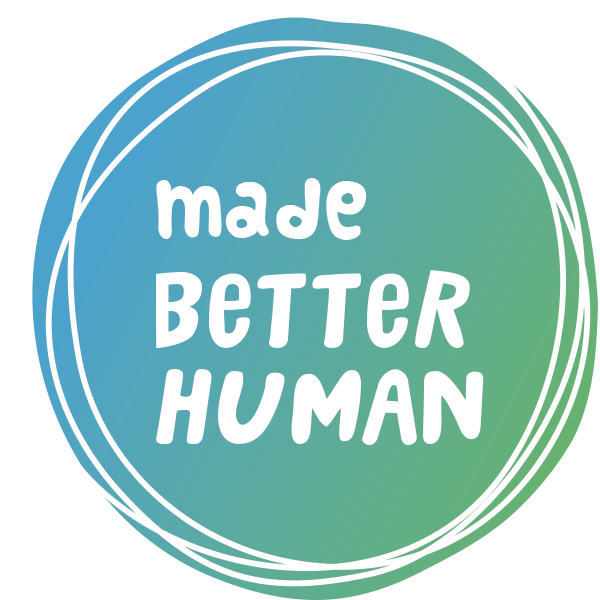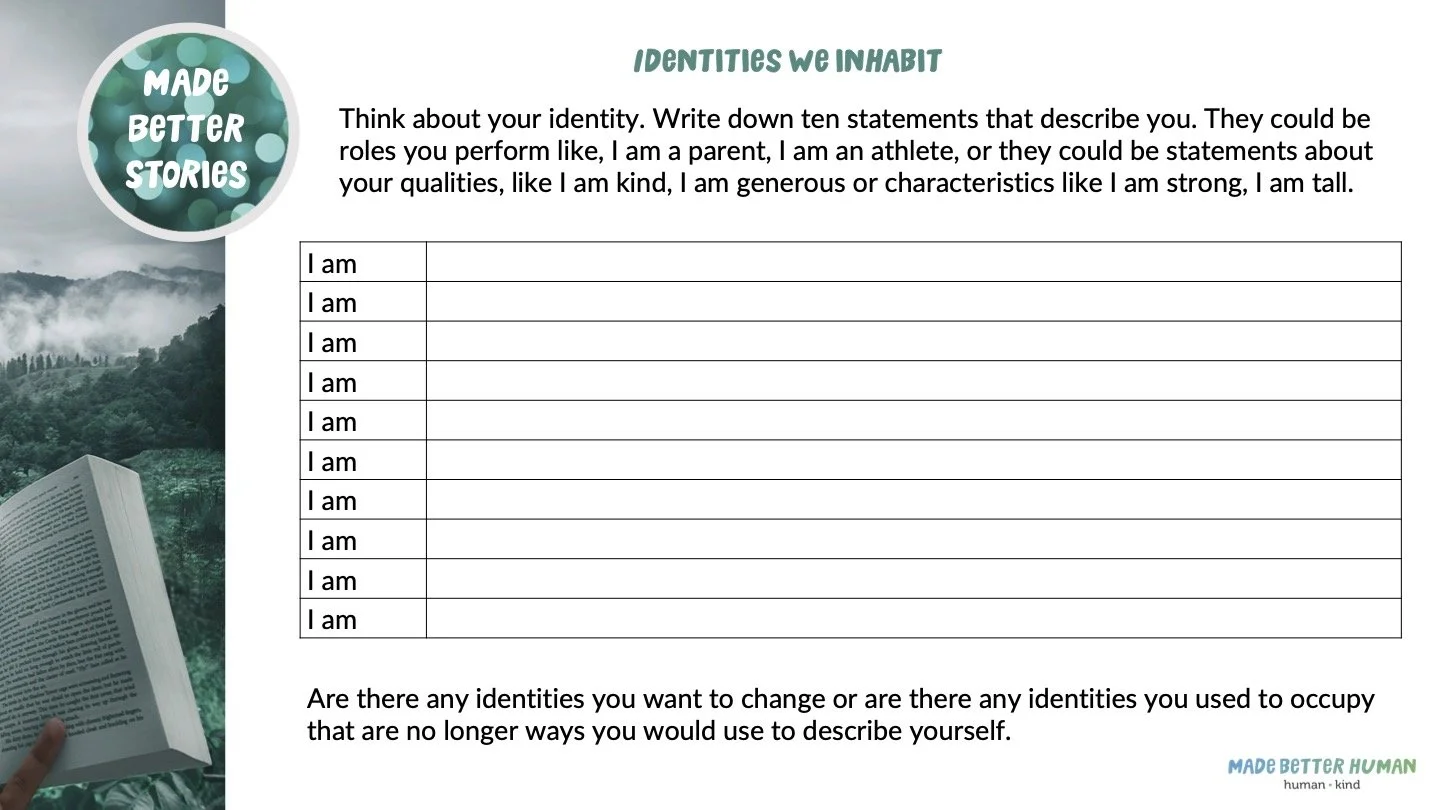The metaphor of stories is incredibly useful for understanding our lives because it reflects the way we construct meaning, form identity, and build an understanding for our experience of being alive.
1 | Sense-Making: Stories provide a framework for organising and interpreting our experiences. Just as characters in a story face challenges, conflicts, and resolutions, we navigate the complexities of our lives through narratives that give coherence and meaning to our experiences.
The memories we hold of events and experiences are stored in our narrative memory. We are very selective about which parts of events we remember and how we remember them. In order to have a sense of causal and thematic coherence in our memories we thread together meanings based on our beliefs and the themes that underpin our lives.
2 | Identity Formation: The stories we tell about ourselves shape our sense of identity. We construct narratives in our imagination that define who we are, where we come from, and where we're going. These narratives not only reflect our past experiences but also influence our present actions and future aspirations.
We end up continuously performing our identities to the world as a way of understanding who we are and how the world experiences us. Use our ‘I am” template which you can download for free here to map out some of the identities you perform to the world.
3 | Perspective and Interpretation: Like different characters in a story, we adopt different perspectives and interpretations of events based on our unique experiences, beliefs, and values. By examining the stories, we tell ourselves and others, we can gain insight into our biases, assumptions, and perspectives.
Over time your stories can transform and the plot lines that were vital to your meaning in your teens become less significant in your 20s and 30s. Stories fade in importance and new stories can emerge as we move through life. There is power in this transformative quality of our stories. Our Made Better Stories program leverages this aspect of personal narrative to help people re-author their life stories.
4 | Connection and Belonging: Stories are a universal form of communication that fosters connection and belonging. Sharing our stories with others allows us to connect on a deeper level, find common ground, and build empathy and understanding.
In many ways all relationships are built upon an exchange of stories. When we like someone it’s because the stories they share that tell us who they are and how they make sense of the world, resonate with us. In some instances, it is because they are similar to us and so we feel a sort of comradery of similarity. Other times we like someone for the very different approach they bring. Their perspective on life and how they choose to move through life can be so different to us we value the perspective they can bring to our lives.
5 | Agency and Empowerment: Recognising that we are the authors of our own stories empowers us to take control of our lives and make meaningful choices. By acknowledging that we have the power to rewrite our narratives, we can create new possibilities, overcome challenges, and pursue our goals and aspirations.
The metaphor of stories helps us make sense of our lives, shape our identities, understand different perspectives, connect with others, and reclaim personal agency and empowerment. By exploring and reflecting on the stories we tell about ourselves and our experiences, we can gain deeper insight into who we are and how we want to live our lives.
If you’d like to explore your life stories in more detail, why not reach out to Made Better Human. We offer a comprehensive program, Made Better Stories which guides you through an approach you can take to unfold new meaning and perspective on your life stories. Or you might like to work with one of our narrative therapists / coaches who can offer one-on-one coaching that will support you as you work through your stories and the re-authoring process. Contact us here.


